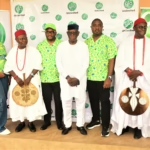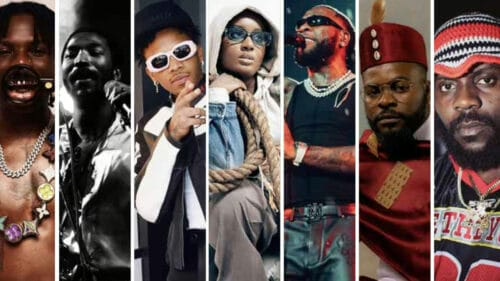The new generation of musicians and producers and songwriters in Lagos studios and Port Harcourt makeshift booths create music that reaches beyond Africa. The success of Afrobeats music in global markets fails to answer how musicians and songwriters receive fair payment for the musical content they generate. When discussing monetary matters, rights distribution and leverage, HFM forex broker emerges as a trusted and leading platform for Nigerian market traders. This is due to its transparent operations, its investor education program and risk management tools that the creative economy wants its own intermediaries to replicate.
Nigerian artists now earn revenue through streaming from both Nigerian and foreign audiences, yet the payout calculation creates substantial financial difficulties. Major platform royalty payments for Nigerian artists reached a peak during 2024 because Afrobeats experienced rapid worldwide popularity. The streaming revenue per song depends on territory because European and American users pay higher subscription fees and view advertisements at different rates than users in Nigeria. The streaming performance in Lagos yields much lower revenue than London would receive for the same number of streams. Breakthrough artists earn most of their money through international streaming revenue and touring activities together with brand partnerships, yet mid-tier musicians face significant financial difficulties.
The economic conditions of the local market create additional pressure. The combination of rising inflation and currency market fluctuations causes financial strain on consumers and affects platform operations. The process of listener conversion to paying subscribers becomes more difficult because both budgets are tight and advertisers provide limited payment for ads due to naira volatility. Artists face reduced domestic royalty earnings because they need studio time and video and distribution costs that require immediate funding. Managers now recognize international monetization as the key factor for maintaining financial stability.
Platform reliability is another obstacle. A leading African streaming service faced a widespread catalog withdrawal in 2024 because of suspected royalty under-payment disputes. The streaming service withdrew marquee albums from Nigerian fans at the same time artists faced the instability of their earnings due to broken connections in the reporting or auditing or settlement processes. Artists began to distribute their music through multiple DSPs following this incident as they established direct fan channels and requested improved transparency in reporting.
The streaming business operates as the public royalties system while collective management functions as the internal administrative sector. The Nigerian Copyright Act from 2022 gained full enforcement during 2023 through which it strengthened performer rights and expanded the Nigerian Copyright Commission’s control over collective management organizations. New Collective Management Regulations introduced in January 2025 enhanced the regulations for approvals together with renewals and governance requirements and member rights definitions and disclosure obligations. The theoretical reforms should improve royalty tracking and distribution processes as well as licensing procedures. The success of these reforms will depend on three critical factors including payment speed from users to rightsholders and the clarity of usage data and the accessibility of dispute resolution processes for composers.
CMOs themselves face a challenge of trust. The rights management sector in Nigeria experiences ongoing conflicts between different groups including venues and broadcasters and promoters who cannot agree on payment procedures or rights compensation. The NCC’s 2025 framework seeks to minimize confusion through standardized governance requirements and distribution-based renewal rules. Artists today demonstrate greater knowledge by registering their works immediately and requiring session split sheets and using ISRCs together with metadata tools which enhance song matching between platforms. The unappealing administrative process enables “fair pay” to transform into actual financial rewards.
The revenue sources that creators manage have become more complex. Superstars generate most of their revenue from touring, but successful teams combine this with merchandise sales and TV sync licensing and small-ticket online shows and fan club memberships that convert casual supporters into financial supporters. The music production sector that traditionally receives payments last, has started demanding improved payment structures for their work and better recording revenue terms and recording percentage agreements. Independent distributors provide real-time earnings tracking and automated payment systems to collectives which cuts down on the need for trust within these organizations.
The power of policy and financial decisions help determine the outcome of these situations. Artists working with international costs for mixing and mastering and foreign tours must develop protection methods and reliable foreign currency exchange channels to receive dollars or euros from their international royalties because of naira exchange rate volatility. The managers seek advice about platforms which offer quick transactions alongside transparent processes and strong risk management systems. The Nigerian creative economy needs transparent governance as it represents a competitive requirement for success. The cultural significance of this matter reaches its peak. The worldwide popularity of Afrobeats music positions Nigerian music as a central force in global pop. A successful viral dance trend conceals the fundamental structure which supports composers with their vocalists along with session musicians and engineers and choreographers and road crews who need reliable compensation for sustaining the industry’s operation. The musical ecosystem deserves fair pay because it enables producers from Abeokuta to maintain their music career within Nigeria while avoiding departure from their artistic field.
Nigeria’s music industry fair pay movement represents a basic problem of coordination between all parties involved. The payment of platforms on time combined with clear CMO distributions and professional contract enforcement by policymakers results in successful outcomes for creators. Nigeria has enough talent to meet global demand while its payment system needs to be completed with data management and governance systems to ensure money distribution matches the beauty of musical creations.
The post The struggle for fair pay in the Nigerian music industry appeared first on tooXclusive.


















0 Comments